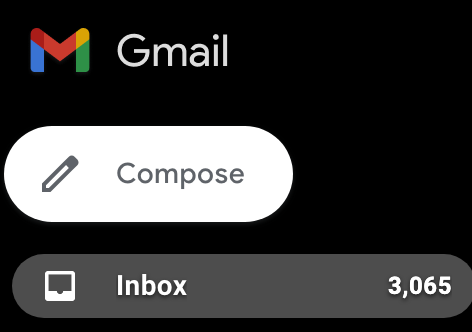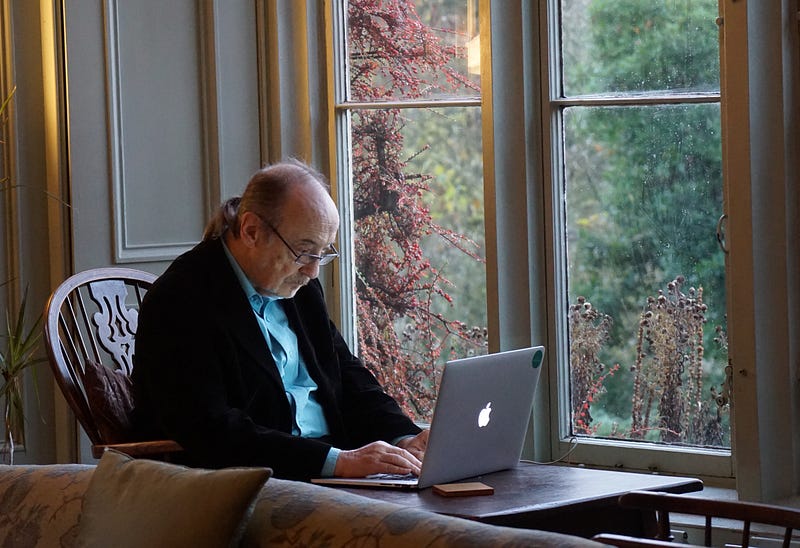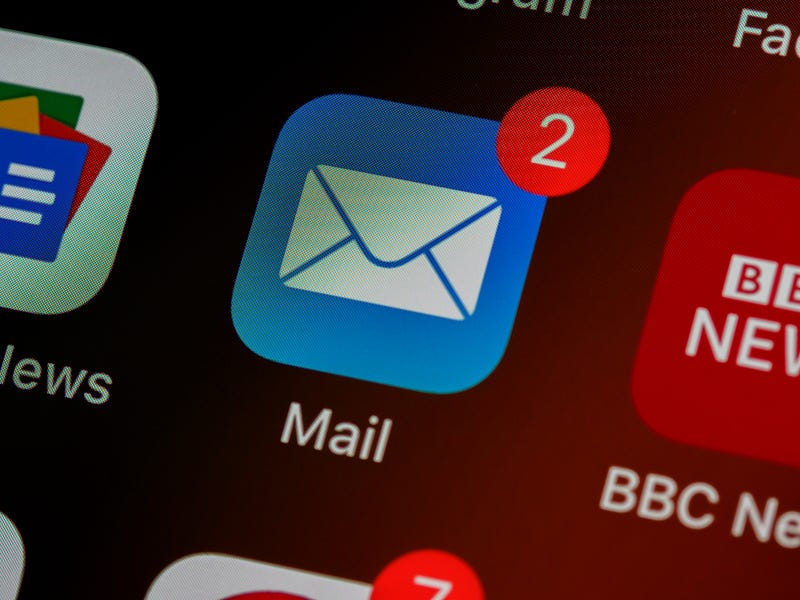Unopened Emails: A Modern Workplace Dilemma
Written on
Chapter 1: The Email Avalanche
Every day, I sift through numerous emails, sometimes tallying up to 200 or more, depending on their content and the sender. I find myself ignoring an equal number, primarily due to spam. The habit of saving emails to “read later” has its roots in my corporate experience, where that ever-present little red flag—often devoid of color but still holding a significant number—seems perpetually stuck in the upward trend.

It’s not just red, but the count keeps rising. (Credit: Me)
Currently, the unread messages in my Gmail are manageable compared to the overwhelming numbers I've faced in the past. Whether it’s hundreds or thousands, that nagging notification makes me feel inconsiderate, as if I’m dodging responsibilities or simply being lazy. To be honest, I’d prefer fewer messages each day, but spam accounts for much of it.
To combat the influx of unwanted emails, I’ve set up filters to direct specific messages straight to my trash folder, keeping the spam and phishing attempts at bay. I have a strict policy of never opening emails (or responding to unknown calls) from strangers—never, ever. My father, unfortunately, faces a barrage of these messages daily. After a few unfortunate encounters where some hacker took over his computer, you’d think he’d have learned. Yet, I still get calls from him throughout the day for tech support (or help desk, for my ITIL friends). Most times, we manage to resolve the issue, but occasionally, he has to take his computer to a repair shop, where it usually takes about a week to fix. Meanwhile, he’s at home binge-watching TV and hardly misses his device.
Upon getting his computer back, he often finds himself staring down thousands of unread emails—sometimes up to 14,000! He feels compelled to sort through them, not wanting to miss out on anything important. His frustration with those little red flags really inspired this article. At 85 years old, he may not be very tech-savvy, but he’s resilient and manages to navigate life, just not so much with emails. He does find humor in the job offers he receives, though.

Photo by Beth Macdonald on Unsplash
From my initial corporate role to now, the guilt associated with unread emails has been a constant presence. Seeing that count rise genuinely makes me feel guilty. Did someone reach out to me and I didn’t reply? Does that reflect poorly on my character as being unresponsive or lazy? Not at all; it merely means I haven’t gotten to it yet.
While options like “mark all as read” or disabling notifications exist, I, like my father, dread the fear of missing out, especially in a workplace setting. Every job I’ve held has emphasized that receiving an email equates to being informed, leaving no excuse for not having read it. Well, I guess I should be accepted for my imperfections. It’s not that I haven’t faced repercussions for not reading emails before attending meetings where everyone assumes prior knowledge. I have, but thankfully, not to the extent of losing my job—just a stern talking to and perhaps a disapproving finger wag later.

Photo by Brett Jordan on Unsplash
Reducing that frustrating number has been a personal mission for me, both at work and in my personal life. While it doesn't bother me as much anymore, it remains an irritating visual reminder; it casts a shadow over my day-to-day activities. In my previous job, there was a light-hearted competition among colleagues to see who had the most unread emails. I once boasted about having 10,433 unread emails, only for another coworker to chuckle and say, “That’s just the beginning!” Their unread count soared into the thirty-thousands. Quite impressive!
This phenomenon is just one aspect of the Cubicle Culture, where accumulating unread emails can be a point of pride for some while inducing guilt for others. Oh well.
Just a moment, my dad is calling.
Thank you for taking the time to read this. I appreciate your visit! If you found this article enjoyable, please click the clap button below, and feel free to share your thoughts. I’d love to hear your experiences, whatever they may be. Additionally, I have two books available on Amazon, titled "Manku" and "Manku Too," which I recommend checking out. For more information about me and my work, visit my website. Everyone is welcome to connect with me on LinkedIn.
Chapter 2: The Impact of Email Overload
This video showcases baby flying-foxes in care, highlighting the playful antics of Hopscotch and Blondie as they navigate their surroundings.
In this official audio track, Bettye Swann sings "Make Me Yours," delivering a soulful performance that resonates with anyone longing for connection.